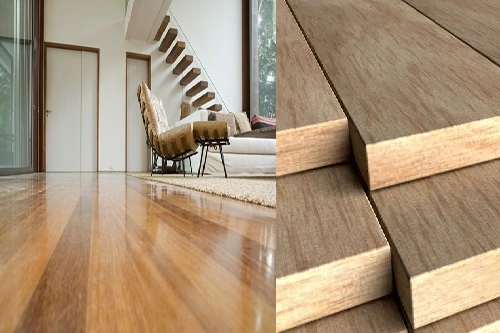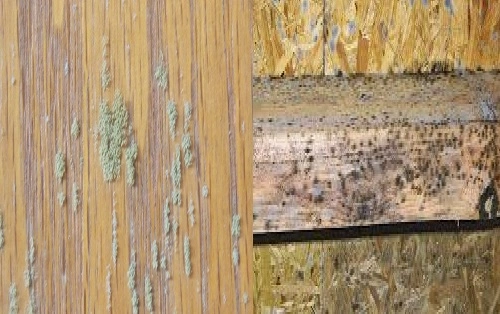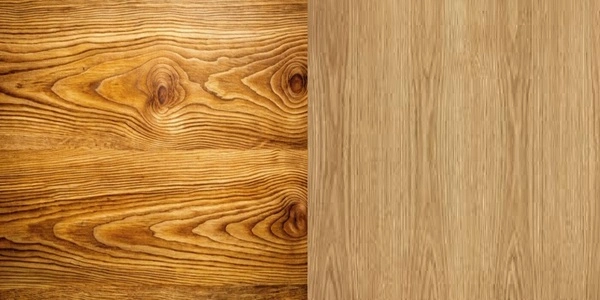When it comes to flooring, homeowners in the USA often face a critical decision: engineered wood flooring or solid hardwood. Both options offer elegance, durability, and value, but each has unique benefits and drawbacks. Whether you’re building a new home, remodeling a space, or upgrading your current flooring, understanding the key differences will help you make the right choice for your needs, budget, and lifestyle.
In this article, we’ll explore the features, advantages, and drawbacks of engineered wood and solid hardwood flooring, helping you determine which option suits your home best.
What is Solid Hardwood Flooring?
Solid hardwood flooring is made from 100% natural wood planks, milled from a single piece of timber. It typically comes in species like oak, maple, cherry, walnut, and exotic hardwoods. Hardwood floors are known for their classic beauty, strength, and ability to be refinished multiple times.
Advantages of Solid Hardwood Flooring:
- Durability and Longevity: Solid hardwood can last for generations. With proper care, hardwood floors can endure for 50-100 years, making them a timeless investment.
- Refinishing Potential: Solid hardwood can be sanded and refinished multiple times, allowing homeowners to repair damage, update stains, or rejuvenate worn-out surfaces.
- Classic Aesthetic Appeal: Solid wood provides a luxurious, natural look that enhances the beauty and value of any home. The variations in grain, knots, and stains give each floor a unique appearance.
- Adds Value to Your Home: Solid hardwood is a highly desirable feature in real estate. It increases property value and appeals to potential buyers.
- Natural Material: Hardwood is eco-friendly when sourced responsibly. Its natural composition makes it an attractive choice for homeowners looking to use sustainable materials.
Disadvantages of Solid Hardwood Flooring:
- Cost: Solid hardwood is expensive, both in material cost and installation. Premium wood species can be a significant investment.
- Moisture Sensitivity: Solid hardwood is prone to warping, swelling, or shrinking in high humidity or moisture-prone areas like basements, kitchens, or bathrooms.
- Installation Limitations: Hardwood must be nailed or stapled to a wood subfloor, making installation more time-consuming and costly.
- Maintenance Requirements: Hardwood floors require regular cleaning, polishing, and refinishing to maintain their beauty and protect them from wear and tear.
- Vulnerability to Scratches and Dents: Solid hardwood can be scratched, dented, or damaged in high-traffic areas, especially in homes with pets or heavy furniture.
What is Engineered Wood Flooring?
Engineered wood flooring consists of a thin layer of real hardwood veneer bonded to a core of plywood, high-density fiberboard (HDF), or other materials. This construction enhances stability, making it more resistant to moisture and temperature changes compared to solid hardwood.
Advantages of Engineered Wood Flooring:
- Stability in Moisture-Prone Areas: Engineered wood’s layered construction resists warping, swelling, and shrinking caused by humidity or moisture. This makes it suitable for basements, kitchens, and even bathrooms.
- Cost-Effective: Engineered wood is typically more affordable than solid hardwood while offering a similar appearance. Homeowners can achieve the elegance of hardwood at a lower price.
- Easy Installation: Engineered wood can be installed in multiple ways, including floating, gluing, or stapling, making it DIY-friendly and suitable for concrete subfloors.
- Appearance: Since the top layer is real wood, engineered wood looks nearly identical to solid hardwood. It is available in a variety of wood species, finishes, and plank sizes.
- Environmentally Friendly: Engineered wood uses less hardwood overall, as the core layers are made from sustainable materials like plywood or fiberboard. This reduces environmental impact.
Disadvantages of Engineered Wood Flooring:
- Limited Refinishing Potential: Engineered wood can only be sanded and refinished once or twice (depending on the veneer thickness). Thinner wear layers cannot be refinished at all.
- Durability Concerns: While durable, engineered wood is not as robust as solid hardwood. It may not last as long, especially in high-traffic areas.
- Resale Value: Engineered wood adds value to a home, but it’s often considered less premium compared to solid hardwood.
- Quality Variations: The quality of engineered wood flooring can vary significantly. Lower-end products may have thin veneers and weaker core layers, reducing lifespan and durability.
Engineered Wood vs. Hardwood: Key Comparison
| Feature | Solid Hardwood | Engineered Wood |
|---|---|---|
| Material | 100% natural wood | Hardwood veneer over plywood or HDF |
| Durability | Very durable; lasts 50+ years | Durable, but lifespan varies (20-40 years) |
| Moisture Resistance | Low; sensitive to humidity | High; resists warping and swelling |
| Refinishing | Multiple refinishing cycles possible | Limited refinishing (1-2 times) |
| Cost | Expensive | More affordable |
| Installation | Requires nailing to a subfloor | Can be floated, glued, or nailed |
| Environmental Impact | Requires more hardwood | Uses less hardwood; more sustainable |
| Best Applications | Living rooms, bedrooms, dining rooms | Basements, kitchens, bathrooms |
When to Choose Solid Hardwood Flooring
Opt for solid hardwood if:
- You want a high-end, long-lasting flooring solution.
- You’re installing floors in low-moisture areas like living rooms, bedrooms, and hallways.
- You’re prepared to invest in regular maintenance and refinishing.
- Home resale value is a top priority.
Best Applications: Formal spaces, luxury homes, and areas with stable humidity.
When to Choose Engineered Wood Flooring
Choose engineered wood if:
- You need a flooring option for moisture-prone areas like basements, kitchens, or bathrooms.
- You’re looking for a more affordable alternative to solid hardwood.
- You want easy installation over a concrete subfloor or radiant heating systems.
- Environmental sustainability is a priority.
Best Applications: Basements, kitchens, bathrooms, condos, and modern homes.
Final Thoughts
Both engineered wood flooring and solid hardwood offer beauty, durability, and timeless appeal. Solid hardwood is ideal for homeowners seeking long-term investment, authenticity, and a premium finish. However, engineered wood provides excellent stability, affordability, and versatility, especially in moisture-prone or high-traffic areas.
Ultimately, your choice will depend on your budget, lifestyle, and the specific needs of your space. By understanding the strengths and limitations of each option, you can confidently select the flooring that best enhances your home’s value, style, and functionality for years to come.


